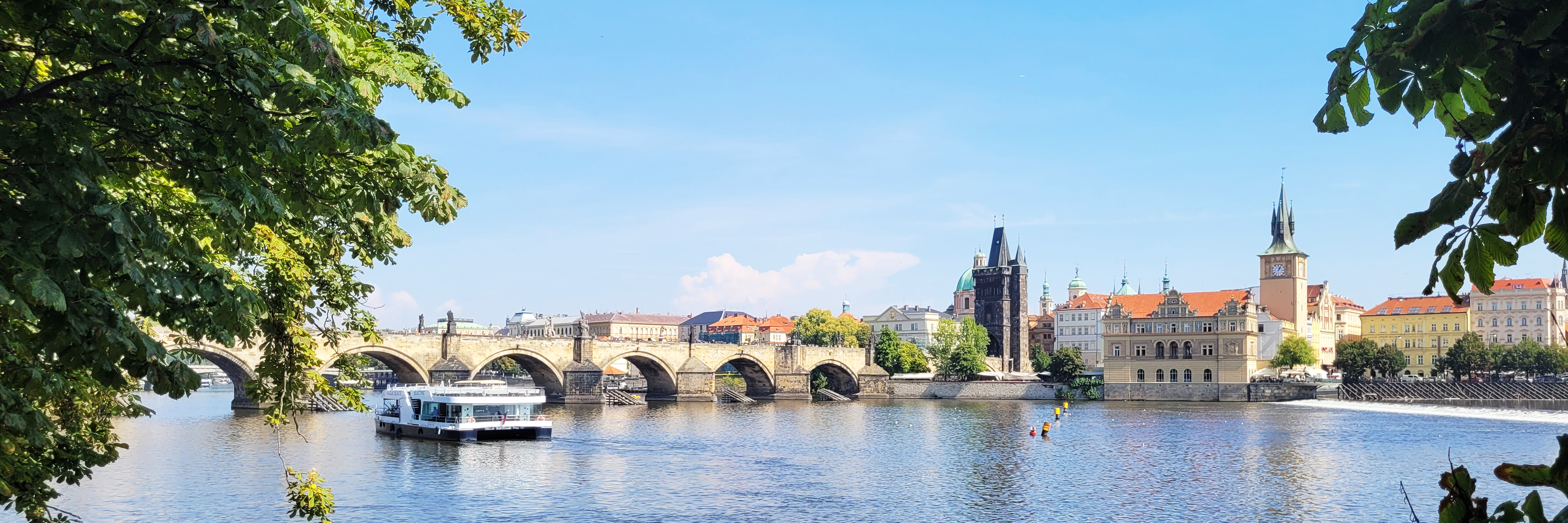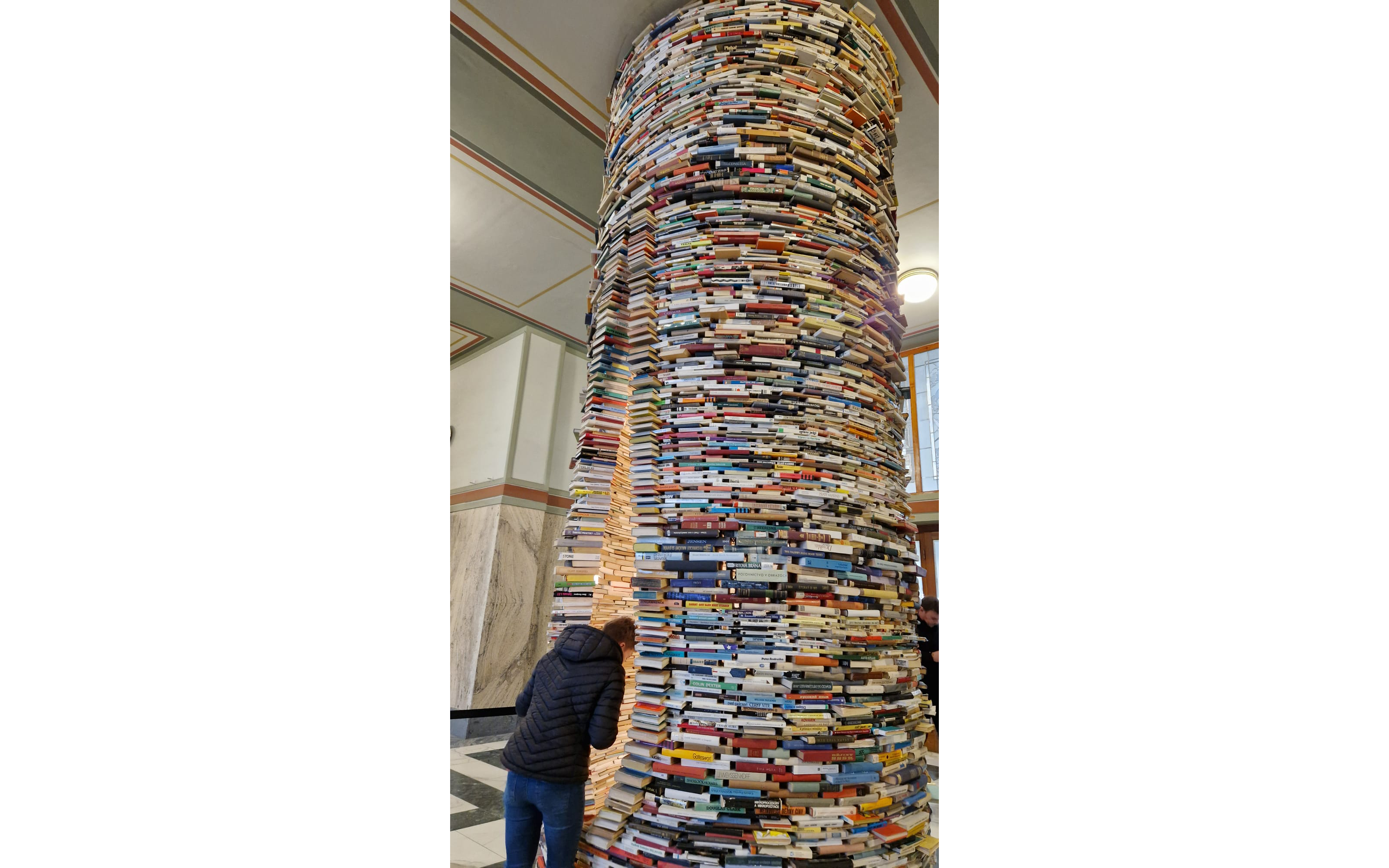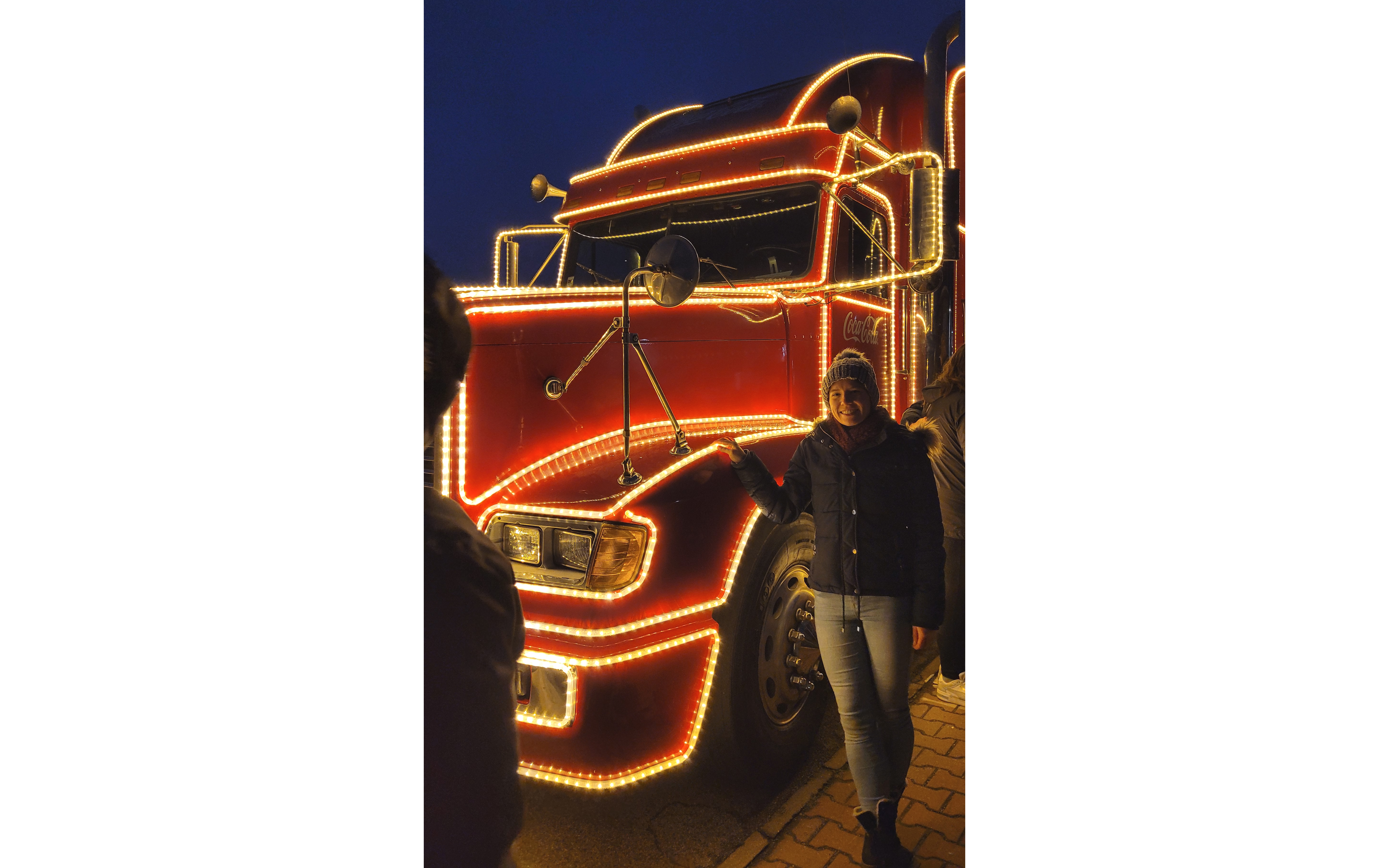Natalie Le Lay
Natalie took the opportunity to do a double degree in Prague and spent one additional semester at the University of Chemistry and Technology
Field of study: MSc in Life Sciences, specialisation Bioanalytics
Stay abroad: Double Degree
Host institution: University of Chemistry and Technology Prague
Semester: Autumn 2024
What made you decide, what motivated you to go abroad?
I already knew during my bachelor's that I wanted to spend a semester abroad during my master's. As more of my friends went abroad and returned positively changed, my curiosity grew. How would I change? What would I learn? What experiences would I take with me?
I wanted to do something completely different — gain new experiences, make friends, and immerse myself in another culture. When FHNW also offered the Double Degree program, it became an added bonus, paving the way for a potential PhD in the future.
Why did you choose your host institution/country?
As a Bioanalytics student, I didn’t really have a choice — Prague was the only option available at the time. But that didn’t bother me; I didn’t have to make a decision and happily took the opportunity. I was looking forward to the challenge and to discovering the city of Prague, so I did some research beforehand.
Many films have been shot there — both during the time of Czechoslovakia and today in the now independent Czech Republic — which already gave me a first impression of the city.
I had never been to Prague or even to the Czech Republic before, so I also asked around among my friends to see if anyone had visited. I only heard positive things — especially about the beautiful city and the delicious food — which reassured me that I had made the right decision.
What is your everyday life like?
We generally only had lectures in the afternoon. When the lab project started, we began our day at the university around 8 or 9 am. There was always something to do in the lab, but I enjoyed my time there, even though it often meant long hours. Afterwards, we either went on a lunch break or straight into the next lecture.
During lunch, we usually sat in the neighboring national library, where we could buy food or eat our packed meals. Often, other international students joined us, and we had nice conversations as a group. The lectures were usually interesting, and the lecturers were always open to questions.
When the weather was still warm and pleasant, many lectures finished earlier, giving us time to explore the city before winter set in. I often took the opportunity to walk through the streets towards my flat. When it got colder, I started taking the tram instead. As the exams approached, I began studying in the evenings.
Tell us about your research findings during your residency.
My laboratory project focused on exploring the impact of ethanolic extracts from Vitis vinifera (grapevine) viticulture waste on various probiotic bacterial strains, with a particular emphasis on their ability to produce SCFAs. The study used in vitro fermentation techniques to simulate gut conditions and analyze the resulting SCFA profiles. By doing so, the research aimed to shed light on how these grapevine extracts might influence gut microbiota composition and function, potentially enhancing the production of beneficial metabolites. This investigation could provide valuable insights into the potential prebiotic properties of viticulture waste and its possible applications in promoting gut health through targeted probiotic supplementation.
This project evaluated seven organic acids, including SCFAs, using an HPLC-UV method for simultaneous detection and quantification. However, excessive lactic acid concentrations caused peak broadening and signal overshadowing, reducing sensitivity and resolution for other acids. The method showed limitations in peak separation, retention time resolution, and co-elution, making it suboptimal for comprehensive organic acid analysis. To improve quantification, strategies such as sample pre-treatment, adjusting HPLC conditions by changing the elution mode and mobile phase composition, or incorporating analysis with mass spectrometry/tandem mass spectrometry are recommended.
Despite these challenges, the project provides valuable insights into organic acid profiles in probiotic cultures with Vitis vinifera extracts, highlighting the need for further method refinement.
What surprised you the most about your stay abroad?
My biggest surprise was how truly great, beautiful, diverse, and vibrant Prague is. My friends had already told me how stunning the city was, so I had high expectations — but they were far exceeded. It is truly "the Golden City." The gold on the rooftops sparkles in the sunlight, and in the evening, when the streetlights glow orange, it gives the city a magical atmosphere.
Prague offers so much: theaters, operas, ice hockey, clubs, restaurants, pubs, and museums — there’s something for everyone. I was also surprised by how safe the city feels. I have never felt so secure in a major city. Crime rates are low, and as a woman, you can walk through the streets alone at night without worry. There is a very high police presence in every district and street, which certainly contributes to the sense of safety. Other countries (such as Germany) could definitely take inspiration from this.
Lastly, I want to mention the countless pubs and restaurants across the city. It feels like every second building houses either a pub or a restaurant — and they’re all busy, if not completely full, which speaks for their quality.
What tips would you give to future exchange students?
Join the Get-to-Know Weekend! I skipped it and deeply regret it. It’s a crucial event where you meet lots of new people from around the world. I assumed I wouldn’t need it because I’m open-minded and enjoy meeting new people, but classes are small, and many Czech students aren’t very engaged, making it difficult to connect. I noticed the difference between myself and those who participated — they made plans together, organized weekend trips, and attended events as a group. Meanwhile, I often had to do things alone since my flatmates weren't always available or had their own plans.
Without my flatshare, my semester would have been quite lonely. Don’t make the same mistake — go for it!
Take as many trips as possible! If you're interested in a city — whether in the Czech Republic or beyond, like Vienna or Krakow — just go! I made the mistake of focusing too much on one big trip at the end of November (Vienna, Bratislava, and Brno for the Christmas markets, organized by ESN), because I didn’t want to spend too much of the money my parents gave me. But the trip was canceled at the last minute, and by the time my exams were over, I no longer had the chance to travel. Things rarely go as planned — remember that!
Is there anything else you would like to share?
There was a major flood in September that caused damage in Austria, the Czech Republic, and Germany. While Prague was spared, I still witnessed the water levels rising daily until they overflowed onto the riverbanks. Promenades were closed off. The sheer force of the water was both fascinating and frightening at the same time.
Another memorable moment was definitely the beautiful Christmas markets across the city. The food and Medovina (mulled wine) you get there are amazing, and the atmosphere is magical.
And yes, an important lesson: If you have something in mind — somewhere you want to go, someone you want to meet — do it now. Don’t say, “We’ll meet someday” or “I’ll do it later”. No — do it immediately. Don’t procrastinate. Time flies faster than you think, and before you know it, you’ve only checked off half your to-do list.
I wanted to visit Karlovy Vary, Dresden, and Vienna. But because I focused too much on a trip that was later canceled, I ran out of time to visit the places I had planned. Never think, “I still have plenty of time.” No, you don’t.
Life is finite — make the most of it. No one can take your experiences away from you. And sometimes, forget about the money — just live.
Unsere Studierenden profitieren von der internationalen Vernetzung der Hochschule für Life Sciences. Ein Auslandsaufenthalt bei unseren Partnerschulen ist bei Bachelor- wie auch Master-Studierenden sehr begehrt. Nicht nur, um den persönlichen Horizont zu erweitern, sondern auch, um neue soziale und kulturelle Kompetenzen zu erwerben.
Im Rahmen unseres Masterprogramms können ausgewählte Studierende durch ein zusätzliches Semester an einer unserer Partnerschulen, zwei Diplome erhalten. Das Double-Degree Programm ist besonders attraktiv für Masterstudierende, die anschliessend eine Promotion anstreben. Weitere Details zum Double-Degree-Programm finden Sie hier.



